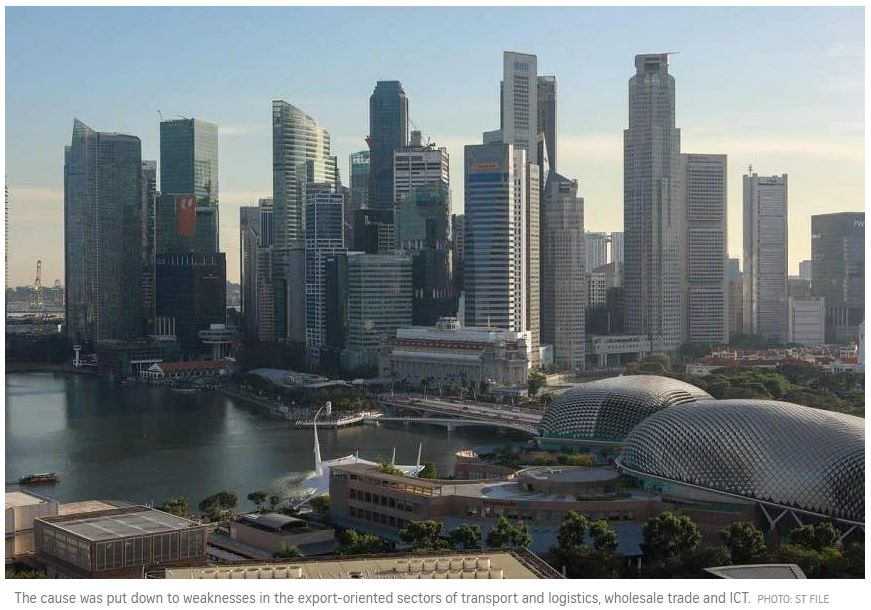Business worsens for Singapore SMEs in Q1 amid weaker global trade, persistent inflation
SINGAPORE – The slowing economy made life a bit harder for smaller companies in the first three months of 2023 after a lengthy period of expansion, a report noted on Thursday.
It gave an overall reading of 49.9 points in an index that OCBC Bank compiles by analysing data from around 100,000 local small and medium-sized enterprises (SMEs) with up to $30 million in annual turnover.
A reading above 50 indicates improved activity, while one below 50 points to a deterioration from the same period a year earlier.
The downbeat reading for the three months to March 31 ended a run of eight consecutive quarters when the index was above 50.
The cause was put down to weaknesses in the export-oriented sectors of transport and logistics, wholesale trade, and information and communications technology (ICT).
Mr Linus Goh, OCBC’s head of global commercial banking, said the region’s economic outlook has improved somewhat amid China’s reopening but continued fragility in global trade and manufacturing, along with persistent inflation, is likely to slow the business momentum.
Business collections fell by 5 per cent year on year in the first quarter against a weakening economy, while payments slid 3.4 per cent, contributing to the latest decline.
The transport and logistics sector posted a reading of 46.6, weakening from 46.9 in the fourth quarter of 2022. The sector was dragged down by its logistics segment, which saw its reading worsen from 46.9 to 45.4 points.
“The industry continues to be impacted by weaker demand amid the slowdown in global trade as well as higher energy costs,” noted the report.
Wholesale trade similarly weakened, falling to 47.1 points from 48.3 in the previous quarter, while the ICT sector remained in contractionary territory, although its reading improved from 48.5 in the fourth quarter to 48.9 in the first quarter of 2023.
By contrast, building and construction was the best performing sector with a reading of 52 points.
Construction demand is likely to hold up, supported by upcoming public and private sector projects. However, high manpower and raw material costs continue to be of concern, noted the report.
Despite the negative reading for the first quarter, SME business owners are still generally positive about their near-term outlook.
Nearly half of the 950 or so SMEs that participated in an OCBC outlook poll expect an improvement in their business performance over the next two quarters, while 37 per cent predicted that performance will remain the same.
But 17 per cent expect a decline, slightly higher than the 15 per cent recorded in the fourth quarter.
Source: https://www.straitstimes.com/business/banking/business-worsens-for-s-pore-smes-in-q1-amid-weaker-global-trade-persistent-inflation


 Thailand
Thailand




